This is considered the foundation for Vietnam to make a breakthrough and improve its competitiveness in the green economic era. To realize Resolution No. 70-NQ/TU, experts have proposed many solutions to mobilize social resources to promote the development of renewable energy...

Prioritize renewable energy
Regarding energy development, since 2020, the Politburo has issued Resolution No. 55-NQ/TU, dated February 11, 2020, on the orientation of Vietnam's National Energy Development Strategy to 2030, with a vision to 2045. The Resolution has laid the foundation for the energy industry to develop rapidly in scale and diversify in structure, from coal-fired power, oil and gas to renewable energy.
The Ministry of Industry and Trade assessed that after 5 years of implementation, Vietnam's energy sector has maintained a stable growth rate, basically meeting the requirements of national energy security, serving socio-economic development, ensuring national defense and security and improving people's lives.
However, at present, the requirements have changed. In the context of the country entering a new growth phase with many opportunities and challenges, instead of just needing “enough electricity for development”, the goal has now been raised to ensuring high-quality energy sources, reasonable prices, sustainability, climate change adaptation and international integration.
Accordingly, with the issuance of Resolution No. 70-NQ/TU, the Politburo emphasized the orientation of developing renewable energy and new energy with the requirement to issue and effectively implement mechanisms and policies related to standards and the proportion of renewable energy in the investment and supply structure. Along with that, the Renewable Energy Certificate (REC) market will also be deployed, to promote the expansion of renewable energy sources to replace fossil energy to the maximum.
For wind and solar power, Resolution No. 70-NQ/TU emphasizes the priority of development in line with the ability to ensure system safety with reasonable electricity prices, especially self-produced and self-consumed power sources, rooftop solar power. For offshore wind power, there will soon be policies to remove difficulties, provide legal support and breakthrough mechanisms for development. A number of large state-owned and private enterprises with prestige, brand names and real capacity are assigned to carry out the task of developing large-scale offshore wind power projects associated with ensuring national defense, security, and protecting sovereignty of seas and islands.
Notably, current problems and difficulties with wind and solar power projects will be resolved through a special mechanism to supplement the national power source, avoid wasting social investment resources, ensure the legitimate rights and interests of investors in the spirit of "harmonious benefits and shared risks"; and strictly handle violations according to legal regulations.
Clearly, renewable energy is not only a solution to reduce greenhouse gas emissions, but also opens up opportunities for Vietnam to become a pioneer in the green economic era.
Deputy Director of the Electricity Authority (Ministry of Industry and Trade) Doan Ngoc Duong said that energy conversion towards gradually reducing the proportion of fossil fuels in electricity production to renewable energy and new energy is an inevitable trend in the world today. Vietnam has been making efforts to implement green energy conversion to realize the goal of carbon neutrality (Net Zero) by 2050.
Sharing at the Vietnam Energy Transition Forum 2025 held recently, Deputy Director of the Hanoi Department of Industry and Trade Nguyen Dinh Thang emphasized that developing renewable energy is not only an urgent task, but also a strategic factor to protect the environment, minimize the impact of climate change and promote sustainable socio-economic development. Infrastructure development, especially new energy, clean energy and ensuring energy security are fundamental conditions for developing science, technology and strategic industries of the country.
Analyzing the potential for renewable energy development in the current period, energy expert Ha Dang Son said that thanks to technological breakthroughs and sharp reductions in investment costs, renewable energy has become more competitive than traditional energy sources. In particular, Vietnam has gradually mastered a number of technologies such as in the field of solar power, many units have joined the global supply chain with domestically produced products. For the wind power sector, many Vietnamese enterprises have signed contracts to supply components and equipment for domestic and foreign projects, including offshore wind power.
“That shows that Vietnam is fully capable of accessing, cooperating internationally and moving towards technological autonomy in this field. In addition, with the increasingly high growth rate of energy demand, promoting investment in developing renewable energy sources and infrastructure, as well as production and service supply systems related to it, will open up great potential in the coming time,” Mr. Ha Dang Son affirmed.
Continue to remove obstacles
Besides the clearly identified great potential, the practice of developing some renewable energy fields in our country in recent times has also revealed many limitations.
Associate Professor, Dr. Dang Tran Tho, Director of the Institute of Energy Technology (Hanoi University of Science and Technology) analyzed that renewable energy sources have unstable power generation characteristics, depending on the weather and time of day. Meanwhile, Vietnam's power system still relies mainly on the traditional model, lacks flexibility, lacks the ability to quickly regulate and has no large-scale energy storage buffer. The strong development of solar and wind power in the period 2018-2020 has exposed the shortcomings in the power infrastructure, especially the baseload and storage power systems.
Agreeing with this limitation, expert Ha Dang Son also pointed out the biggest weakness of renewable energy is its instability, which depends heavily on the weather, making it difficult to ensure continuous and adequate supply to the power system. In addition, the development of transmission infrastructure has not been commensurate with the speed of investment in renewable energy. As a result, many projects have been completed but not fully utilized, reducing investment efficiency and causing investors to lose confidence.
In order to resolve the above shortcomings, Resolution No. 70-NQ/TU has raised the issue of the need for a specific mechanism to resolve current obstacles, from contracts, legal procedures to project approval processes. Experts say that this must be a top priority because timely intervention and ensuring transparency by the Government will restore investor confidence and affirm the determination to build a serious and sustainable renewable energy market.
In addition, the solution of promoting green financial policies, preferential mechanisms on capital and tax, and investing heavily in human resource training, developing research and technology transfer centers so that Vietnam can gradually master modern technologies such as solar power and wind power plays a very important role. In the context of the strong growth in investment demand for energy transition in Vietnam but the current financial system is not able to meet the scale, economic expert Ngo Tri Long proposed that it is necessary to pilot the National Energy Bank model. This bank will help Vietnam better mobilize long-term, sustainable investment capital for renewable energy projects.
In addition, according to experts, another key point is the need for a transparent roadmap for reforming the electricity market, especially the electricity price mechanism. According to the member of the National Assembly's Economic and Financial Committee Phan Duc Hieu, electricity is an essential input for production and business activities, so if we build an electricity market that is too attractive, with too high profits, turning electricity into a mere investment channel to attract capital, it is very likely to push up production costs, negatively impacting the economy. Therefore, Mr. Phan Duc Hieu believes that it is necessary to create an electricity market that is attractive enough to attract investment, but at the same time must be kept at a reasonable level, ensuring a stable, clean electricity supply, serving production development and life, without putting too much pressure on input costs.
“Only by simultaneously implementing solutions such as removing legal obstacles, reforming electricity prices, creating green financial mechanisms and improving technological capacity can we effectively mobilize social resources and realize the goals of Resolution No. 70-NQ/TU in developing renewable energy,” expert Ha Dang Son affirmed.
Source: https://hanoimoi.vn/nang-luong-tai-tao-nen-tang-but-pha-trong-ky-nguyen-kinh-te-xanh-717221.html




![[Photo] Special class in Tra Linh](https://vphoto.vietnam.vn/thumb/1200x675/vietnam/resource/IMAGE/2025/11/14/1763078485441_ndo_br_lop-hoc-7-jpg.webp)
![[Photo] Unique art of painting Tuong masks](https://vphoto.vietnam.vn/thumb/1200x675/vietnam/resource/IMAGE/2025/11/14/1763094089301_ndo_br_1-jpg.webp)

![[Photo] Deep sea sand deposits, ancient wooden ship An Bang faces the risk of being buried again](https://vphoto.vietnam.vn/thumb/1200x675/vietnam/resource/IMAGE/2025/11/13/1763033175715_ndo_br_thuyen-1-jpg.webp)
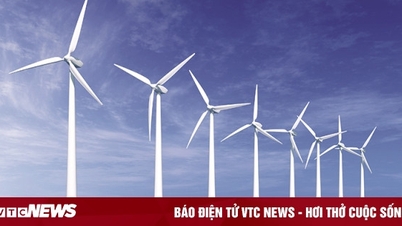



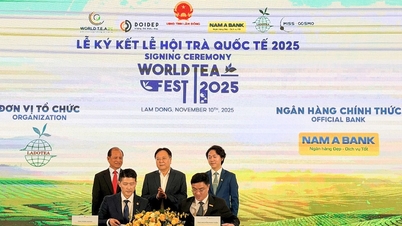





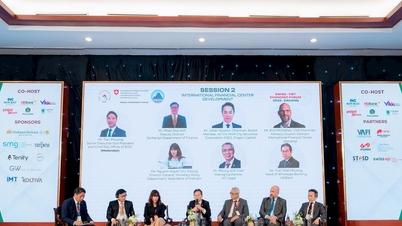

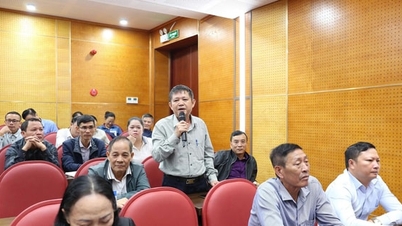
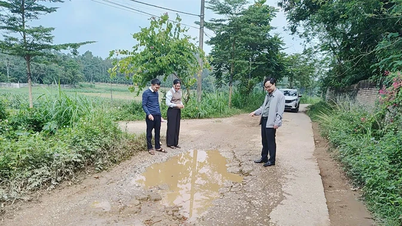




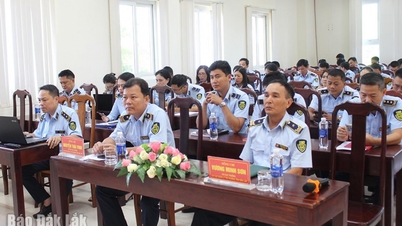





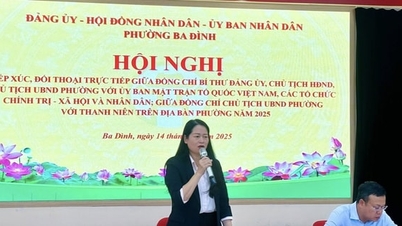
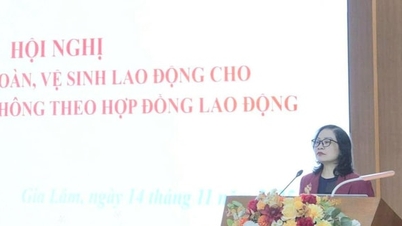
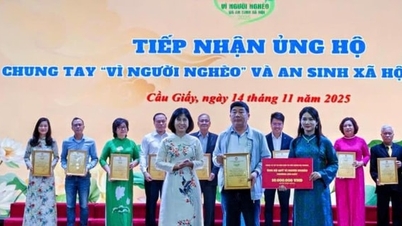
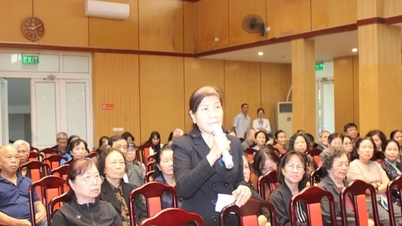
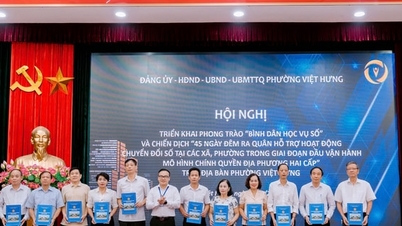
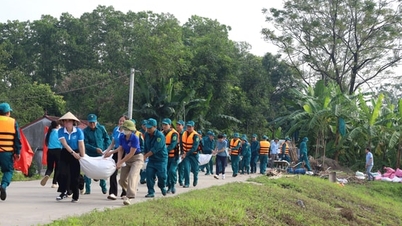









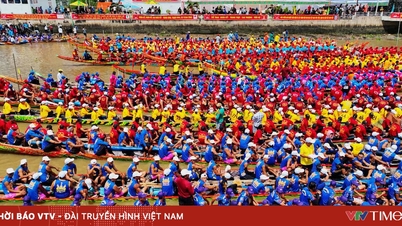











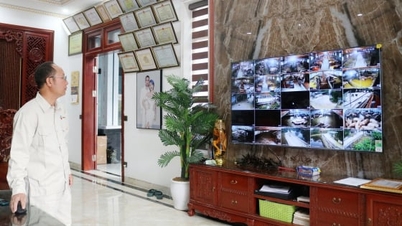


























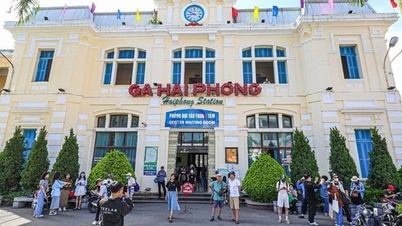



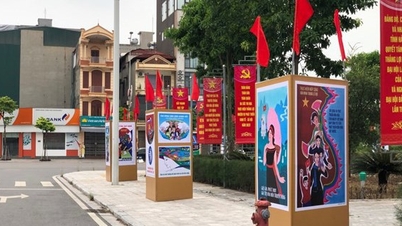
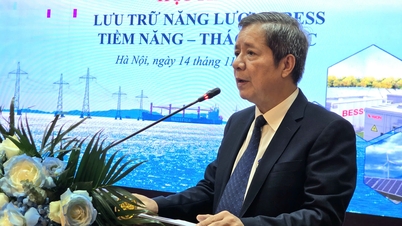

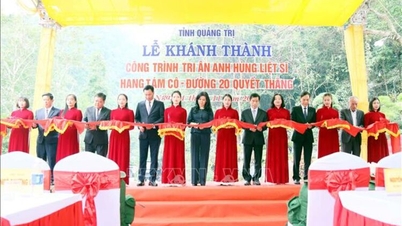

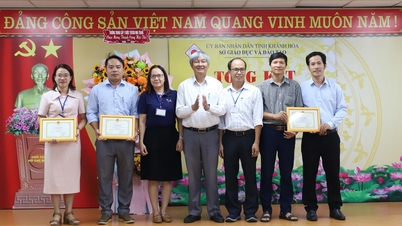








![Dong Nai OCOP transition: [Article 3] Linking tourism with OCOP product consumption](https://vphoto.vietnam.vn/thumb/402x226/vietnam/resource/IMAGE/2025/11/10/1762739199309_1324-2740-7_n-162543_981.jpeg)






Comment (0)